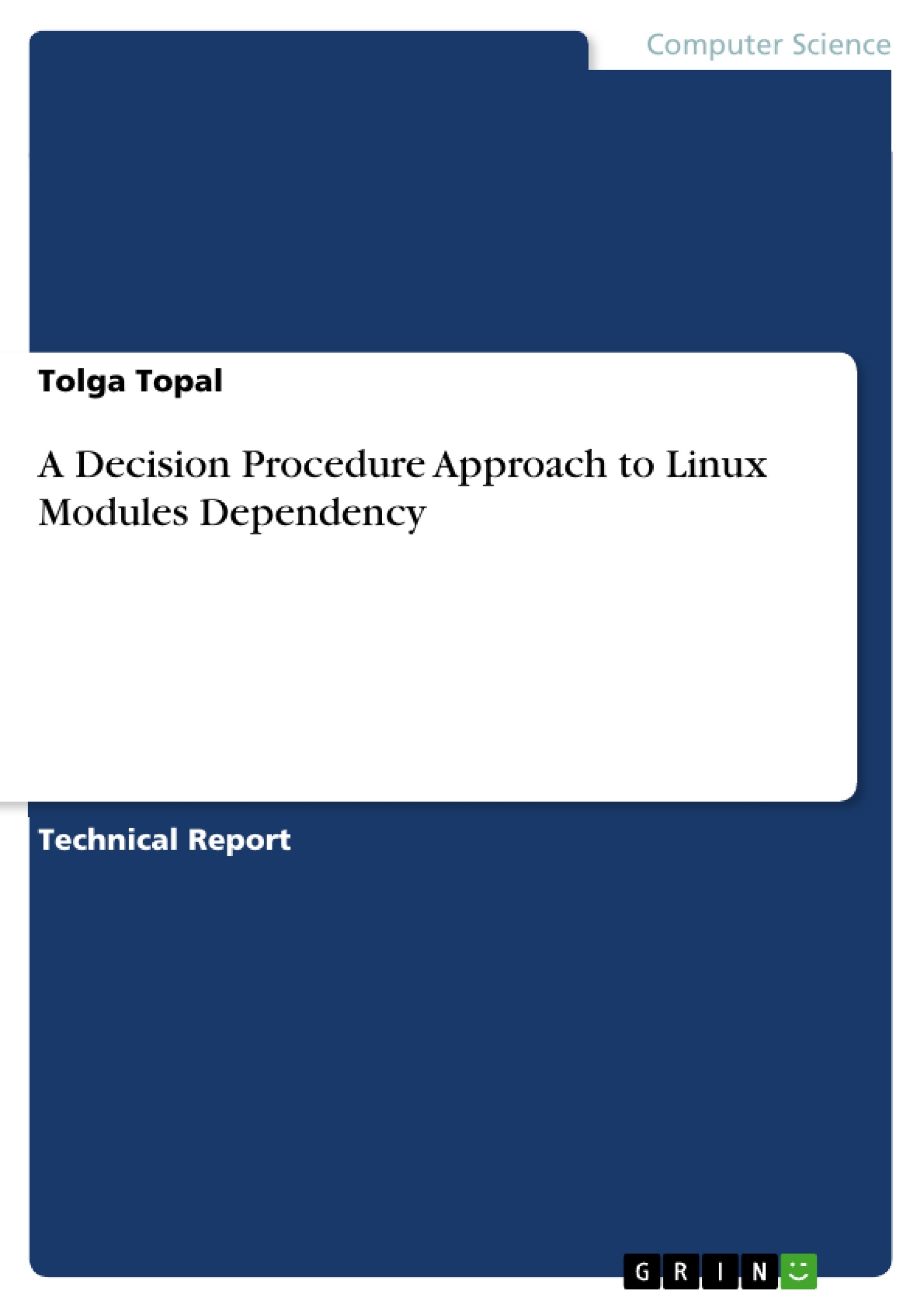This report focuses on the dependency resolution mechanism between modules for the Linux kernel. The reasoning concerns how to express dependency relation in propositional logic, based on different Linux kernel modules. It is around this topic that further development will be held. The reasoning will concern how to express this dependency relation in propositional logic.
To establish a development, an analysis of the kbuild system is performed. The goal is to identify how and what are the elements that take part in the dependency tracking mechanism.
The kbuild is a framework providing tools to construct the kernel. It can be declined into two main component : the kconfig files and makefiles. These are the elements that are responsible for handling dependency.
Logic is used to express a proof i.e., the correctness of a reasoning. To do so, a proof assistant viz., Coq is used. A decision procedure is a mechanism that resolves a problem by answering it using yes or no.
Inhaltsverzeichnis (Table of Contents)
- Introduction
- Context
- Approach Motivation
- Goal
- Road map
- Resources References
- Preliminaries
- The Actors
- The Kbuild System
- Organization of the Kbuild System
- What is Logic
- Propositional Logic
- Why Propositional Logic
- Propositional Logic Syntax
- Logical Connectives
- Proofs Procedures
- Model
- Kernel Dependency Tracking
- The Goal Definitions
- Configuration Options Organization
- Menu Structure
- Menu Entry
- Menu Attributes
- Recap
- Elements of Proof
- Coq
- Presentation
- Goal
- Proof of concept for a specific module
- Kernel Dependency Tracking
Zielsetzung und Themenschwerpunkte (Objectives and Key Themes)
This work explores the Linux kernel configuration process with a specific focus on how the kbuild system manages dependencies between modules. It aims to enhance the reliability and robustness of the kernel configuration system.
- Kernel configuration process
- Kbuild system and dependency management
- Reliability and robustness of the kernel configuration system
- Propositional logic and its application to kernel configuration
- Coq proof assistant and its role in verifying kernel configuration dependencies
Zusammenfassung der Kapitel (Chapter Summaries)
The introduction lays the groundwork for the thesis, defining the context and motivation behind the work. It outlines the approach taken and the goal of enhancing the kernel configuration process.
Chapter 2 provides preliminary information about the actors involved in the kernel configuration process, including the kbuild system and the role of logic, specifically propositional logic. It dives into the details of the kbuild system, its organization, and the syntax of propositional logic.
Chapter 3 focuses on the model used to track kernel dependencies, specifically the configuration options organization. It describes the goal definitions, the menu structure, menu entries, attributes, and provides a recap of the model's key elements.
Chapter 4 delves into the elements of proof, introducing the Coq proof assistant. It discusses the presentation of the proof, the goal, and a proof of concept for a specific module.
Schlüsselwörter (Keywords)
The main keywords and focus topics of this text include Linux kernel configuration, kbuild system, dependency management, propositional logic, Coq proof assistant, reliability, robustness, and proof of concept.
- Quote paper
- Tolga Topal (Author), 2015, A Decision Procedure Approach to Linux Modules Dependency, Munich, GRIN Verlag, https://www.hausarbeiten.de/document/1442860



